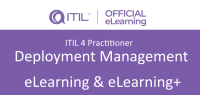Exam Glossary
| Term | Main definition |
|---|---|
| identity | A unique name that is used to identify and grant system access rights to a user, person, or role. |
| improve | The value chain activity that ensures continual improvement of products, services, and practices across all value chain activities and the four dimensions of service management. |
| improvement | A deliberately introduced change that results in increased value for one or more stakeholders. |
| improvement review | An evaluation using metrics and other evidence to determine whether an improvement has achieved its desired outcomes and, if not, what needs to be done to complete the work. |
| incident | An unplanned interruption to a service or reduction in the quality of a service. |
| incident management | The practice of minimizing the negative impact of incidents by restoring normal service operation as quickly as possible. |
| indicator | A metric that is used to assess and manage something. |
| industry disruption | Disruption that occurs when digital technology introduces a change that impacts a specific industry (e.g. manufacturing, finance, retail, or mining) or a group of related industries (e.g. e-books and self-publishing, |
| information and technology | One of the four dimensions of service management. It includes the information and knowledge used to deliver services, and the information and technologies used to manage all aspects of the service value system. |
| information model | The construct of information, related to the taxonomy and relationships of data to other data, required to present and share content in a meaningful and representative way. |
| information security management practice | The practice of protecting an organization by understanding and managing risks to the confidentiality, integrity, and availability of information. |
| information security policy | The policy that governs an organization’s approach to information security management. |
| information technology | The application of digital technology to store, retrieve, transmit, and manipulate data (data processing), often in the context of a business or other kind of organization. |
| infrastructure and platform management practice | The practice of overseeing the infrastructure and platforms used by an organization. This enables the monitoring of technology solutions available, including solutions from third parties. |
| innovation | The adoption of a novel technology or way of working that has led to the significant improvement of an organization, product, or service. |






